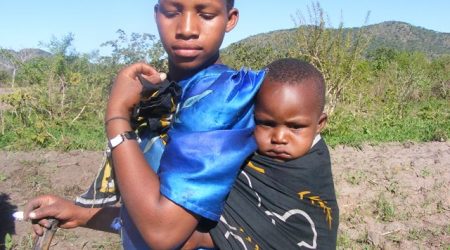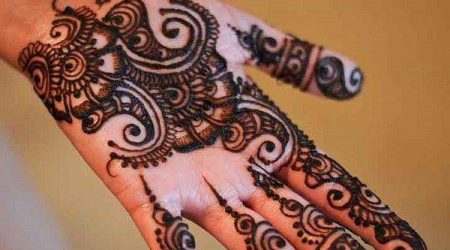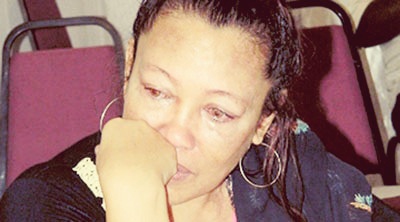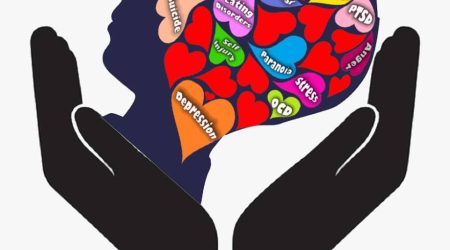Violence against Women VAW
Findings in Kinondoni district, Dar es Salaam
- The Social Welfare Department in the Kinondoni District Commissioner’s office receive an average of 200 domestic violence cases per month. Over 45 per cent are new cases while the rest are ongoing cases.
- The National Muslim Council of Tanzania, BAKWATA receives an average of 16 new domestic violence cases per month.
- The Tanzania Assemblies of God Church has started a training programme for parish volunteers to counsel families about domestic violence.
- The 95 respondents in a survey gave various reasons for VAW; however, underlying those reasons is patriarchy – women’s low status in society and women’s lack of access to resources like land; soft loans; and opportunities for education.
- Sexual abuse of children has been noted; however, families are reluctant to institute criminal proceedings against the perpetrators because of the stigma that a child who has been sexually abused is bound to face, if the abuse is made public.
- The Faith Based Organizations FBOs are slowly becoming sensitized. This is illustrated by religious leaders advising women to seek redress in law courts and to have the perpetrators prosecuted.
- There are less than 30 social welfare officers in Kinondoni district which has a population of nearly 1.6 million people.
- The most common form of VAW is domestic violence.
- There is not sufficient legal aid or counselling services for survivors of VAW.
- Women opt to stay in abusive relations because of poverty; status- divorced women are seen as social falures; and societal pressure.
- Families do not support women who take legal action against perpetrators of VAW.
- The Kinondoni Primary Court receives an average of 6-7 VAW cases per month.
- Women killing has been reported in Kinondoni district with the cases referred to the High Court of Tanzania.
- The recording system of VAW in Kinondoni Primary and District Court is comprehensive with files going back 20 years, which makes it easy for researchers; and for building Authorities for Rulings and Judgements on VAW.
- The police at Oysterbay Police Station receive an average of 20-25 new complaints per month of VAW, mainly those of domestic violence. However, there is no follow-up as the women “reconcile” with their spouses/partners and then become reluctant to give evidence which makes it difficult for law enforcement officers to do a follow up.
- The Mwananyamala District Hospital receives VAW cases like women burnt with paraffin stoves; shoved; and beaten; though the women lie by saying they had accidents while doing household chores. The Mwanyanyamala District Hospital insists on the Police Form 3 before proceeding with medical treatment on the victims. This has made some women opt to get treatment from small private clinics.
In a survey conducted by this writer and the late Michael Mbaga, on VAW, we employed a gender-sensitive, qualitative, participatory approach within the social; cultural; economic; and political dynamics of the communities of Kinondoni district in Dar es Salaam.
We noted that a very small percentage of respondents admitted to have experienced violence personally in Kinondoni district.
This could be explained by the fact that sensitization on issues pertaining to domestic and sexual violence has not gained sufficient strength. Women still feel ashamed to admit they are experiencing VAW.
The issue of cultural and social norms has been instrumental in women’s decision not to report VAW cases.
Findings from a Survey conducted in Kinondoni district 2009-2011
- Physical Violence (Battery)
Of the 95 respondents (both women and men) nearly all (95%) admitted on the existence of VAW. Women respondents admitted to have seen VAW taking place, while men respondents also admitted to have seen VAW taking place among family members; friends; neighbours. There were also a few cases in which the respondents admitted to having witnessed women using physical violence against their spouses/partners, particularly in self defence.
Table 1: Physical Violence Existence- respondents from the survey
| Does battery exist? | ||
| Yes | No | |
| Respondents | 90 | 5 |
On what contributed to VAW/battery, alcoholism and unemployment among men was cited as being the major cause in the domestic violence cases. It is followed by polygamy; adultery; and rows over money; in that order. Other reasons included jealousy among women; poor cooking on the part of women; and exchange of insults and abusive language between the spouses.
 Figure 1: Reasons for Battery
Figure 1: Reasons for Battery
During random interviews, some of the respondents admitted that many women who are battered do not reveal the incidents because of fear of societal backlash. They fear becoming ostracized from the mainstream. They also fear the sniggers and innuendo thrown at them if they admitted to being physically; verbally; or emotionally abused by spouses/partners.
Case Reporting on average per 3 months
| Reported | Not
Reported |
Family
Support |
Isolation | Awareness of Battery
as Crime |
|||||
| Police | Parents | Friends & Neighbours | |||||||
| Yes | No | Neutral | |||||||
| 253 | 130 | 23 | 340 | 513 | 233 | 591 | 70 | 85 | |
Data from Social Welfare Department
They said women in Kinondoni were aware of VAW but failed to speak up to get legal redress because of custom and tradition, which places women in a low; disempowered status. Battered women also failed to report the incidents of violence and abuse because of lack of education; lack of confidence; male dominance; and cultural socialization.
The male respondents in the Study were hostile, and did not want to speak much on domestic violence since the matter touched them. On the women’s part, the fate of the husbands if they were reported to the police, that of criminal prosecution for assault; and maybe spending time in jail/correctional centre, made the women hide the truth about domestic violence.
However, of late, there has been some level of awareness among women and men on the issue of domestic violence. This follows the reporting of the domestic violence in the newspapers; radio; and television. The Outreach conducted by Community Based Organizations on domestic violence has also raised awareness on the existence of domestic violence; the forms it takes; the legal procedure to undertake when domestic violence takes place; and the affirmation to survivors, women mainly, that ‘It is not their fault’.
As a result, of the 95 respondents in the survey, nearly 60 said families now supported women undergoing domestic violence if they make the decision of reporting the matter to the police, though they feared that such women would be isolated from their communities if they reported the matter for law enforcement.
On whether domestic violence/battery was a crime, nearly 80 per cent of the respondents said they were aware that is a criminal offence. Only 10 per cent were not aware that domestic violence/battery is a crime.
- Defilement/Sexual Abuse of Children
According to random interviews during the survey in Kinondoni, it was noted that defilement is common and after campaigns by Civil Society Organizations to reduce, if not end domestic and sexual violence, parents have now started to report defilement cases to the police.
Only 32 respondents admitted to know children who have been defiled. The rest said they got information from hearsay.
Table 2: Defilement
| About Defilement | Defiler | |||||
| Yes | No | Hearsay | Relatives | Stepfather | Teacher | Stranger Unknown person |
| 32 | 0 | 63 | Common | Some | Common | Yes |
Of the respondents who knew of children known to have been defiled, some said the children were between 1-5 years; most said the children were between 6-14 years. The abused children were both girls and boys.
As an indicator of abhorring the practice, the 32 respondents said contrary to what happened in the past, defilers were now not being accepted or respected in the families. Only 0.1 per cent of the respondents said the defilers were accepted and respected. The rest did not respond to the question.
Of the respondents in the survey 34 per cent said defilement cases were reported to the police and to parents; while 23 respondents said the matter was reported only to friends and neighbors. The rest said defilement cases were not reported or were settled outside the legal system.

Data from Police Files
As in child sexual abuse/defilement, respondents said rapists included close relatives, neighbors and strangers (unknown people).
Table 4: Rape Incidences
| Know of a Woman Raped? | Rapist | Family Awareness | ||||||
| Yes | Media
Info |
Close Relative | Neighbour | Stranger | Yes | No | No Response | |
| 28 | 42% | Yes | Yes | Yes | ||||
On action taken, Legal Aid Centres in Kinondoni District said when the cases are brought to them; they immediately report the matter was reported to the police.
Some 76 respondents said relatives were informed; 30 respondents said the victim and the family took no action, which means they kept silent because of the social stigma attached to a survivor of sexual violence, or the matter was settled outside the legal system.
While in adult women rape cases respondents proposed for corporal punishment, life imprisonment or both corporal punishment, and imprisonment; in child sexual abuse, they suggested three harsh sentences: castration, life imprisonment, or execution.
There were five reasons the respondents said which were the major causes of rape. What contributes to rape, the respondents said, were narcotic drugs; alcohol; decay of morals; and disregard to women. On whether indecent/short dresses worn by the survivors contributed to rape, 45% agreed while the rest did not agree. Those who did not agree were mainly from Legal Aid Centres, CSOs and women respondents.

Figure 4: Reasons for Rape given by respondents in the Survey
Therefore, the respondents in the Survey were of the opinion that of the major causes of rape, decay of morals appears to contribute more to the problem with respondents suggesting tougher punishment for those found guilty.
-
Female Genital Mutilation – FGM
Little appears to be known of female genital mutilation in Kinondoni. Many of the respondents who filled the questionnaires or those interviewed randomly said they have heard of the harmful practice but they have never seen it practiced in their families. Legal Aid Centre respondents seemed to know more about FGM.
From the survey, nearly 94 per cent of the respondents said FGM is not practised in Kinondoni. Only 6 per cent of the respondents said it was practised particularly by pastoral ethnic groups.
Of the ethnic groups which practised female genital mutilation 12 respondents mentioned Somalis, 3 Ngazija, 10 Chagga and 10 Nyiramba ethnic groups.
Also 93 per cent said female genital mutilation was not forced by religion while 94 per cent of the respondents said female genital mutilation was not necessary.
Précis
A survey on domestic and sexual violence in Kinondoni has revealed that the problem exists. As in the rest of the country, the truth has, however, been hidden because of fear of the brunt of social and cultural stigma.
It is against this background that a lot has to be done particularly public education, to educate people on the issue of domestic and sexual violence. The tempo has to be maintained through media advocacy in order to achieve the desired results.
Respondents admit, for example, that defilement/child sexual abuse has existed for many years but it has been kept a secret by parents and families. Women also do not report domestic violence cases out of fear of violating traditional norms. This vicious circle has got to be broken to liberate victims of VAW in the society.
The economic situation in Kinondoni like elsewhere in Tanzania has made most women suffer in silence. In the survey, respondents admit that women are worried over the fate of their husbands if they report the matter to the police. As a result, men have used this loophole to lure the women when they beat them by giving those women gifts like money; kanga; or gold chain/rings as an apology to the battered women. This illustrates VAW is linked to the economy, and also to the traditional system of moral blackmail by ‘paying off women so they would remain silent’.
During the survey, awareness on the issue was noted. For example, in physical violence/battery, nearly 81 per cent of the respondents were aware that battery was a crime.
On defilement/child sexual abuse, 84 per cent of the respondents said the matter was now being discussed in families in addition to the mass media which report on the issue accounting for 80.4 per cent of the awareness on the issue.
Similarly, in rape almost 70 per cent of the respondents were aware of the issue. This led to respondents during random interviews to call for special courts/hearing for VAW cases and review of existing laws to impose harsh penalties against the perpetrators, in relation to domestic violence.
Law and Legislation
Article 1 of the African Charter on Human and People’s Rights says “Every individual must be entitled to equal protection of the law.”
Tanzania has inherited the English legal system though it works parallel to customary law. This has a negative impact on women’s inheritance rights and property ownership to name just two examples.
Since independence, we have been juggling with the two sets of law – judicial and customary – which has to all intents and purposes been confusing to women. Despite the ratification of International Conventions on Human Rights by Tanzania, there are still many discriminatory aspects in the implementation of law and legislation in the country.
For example, civil codes in many instances have not been adequately reviewed for repealing those laws which are discriminatory to women and for determining on the basis of equality, the legal capacity of women, in particular in the laws pertaining to inheritance, divorce, alimony and custody of children.
Another negative aspect of customary law has been neglected in marriage where a woman is treated as property rather than a partner. In many ethnic groups, a woman’s consent is not considered necessary and because of the bride wealth given to her parents is regarded as property that was bought. There have been instances where a woman was inherited as a piece of goods by the husband’s male relatives when the husband died.
Law concerning sexual violence stipulate that it is a criminal offence for any individual to inflict injury, to molest, assault or use threatening language against another individual(s) but most of the women do not have access to the legal process.
First of all, there is the question of legal literacy and lack of comprehension or awareness of the law.
Secondly, we have to take into account that the dissemination of information to women’s groups has not been adequate and thirdly, we bring into focus the Tanzanian women’s triple burden – producer and caretaker of family – which leaves her with little time to read a simple primer to practice her reading skills, let along law books, most probably in a foreign language.
And even those women who are aware of their rights, how many would have the courage or the means to appropriate a lawyer? Even if they have those two components at their disposal, how sure are they that their efforts may not be thwarted even in a court of law where it is said that justice should prevail?
Those women who are raped or sexually harassed who had the courage to try and press charges had the belief that the law would not only protect them but would also bring the perpetrators to justice, were disappointed. Instead of being treated as the victims, their private lives were stripped bare and the roles became reversed. The criminals became the heroes while the victims became the villains.
This illustrates that though most aspects of the law may look good on paper, societal trend has been to treat a woman victim as a fallen woman who asked for it and therefore deserved what she got!
Magistrates, prosecutors, defence councillors, court clerks are all part of the treadmill of our society and to a great extent, are guilty of biased opinion against women in favour of men. Here we can safely say that crimes like assault, battery, discrimination at workplaces, have been for generations so deeply entrenched in our cultural ethos, that they have come to be accepted as the norm.
This acceptance of oppressive practices as part of our cultural heritage has contributed largely to the violation of human rights with respect to women and so long as these practices continue to be accepted as an integral part of our lives, women will continue to be oppressed and their human rights nothing but a sham.
Therefore, some statutory laws and some customary laws have got to be revised in order to accommodate the principle of human rights in relation to women. In fact, the spirit of CEDAW (the Convention on the Elimination of Discrimination against Women) should be incorporated in the country’s judicial process.
Violence against women is a violation of Human Rights
Article 6 of the African Charter on Human and People’s Rights says: Every individual shall have the right to liberty and security of his person.
Also, the first Regular Session of the UN Economic Social Council (ECONSOC), particularly urged UN member states to adopt, strengthen, and enforce legislation prohibiting violence against women in all its forms. It recommended that a framework for an international instrument explicitly addressing the issue of violence against women be developed in consultation with the Committee on the Elimination of Discrimination against Women (UN).
However, despite these African and UN Charters, despite many legal provisions protecting them against abuse, women in Tanzania are victims of all forms of violence, an issue until recently, was rarely discussed openly.
In Kinondoni we learnt that nearly four out of ten women have experienced violence either in the form of threats, battery, insulting language, pushing and shoving from their partners/spouses. This is just the tip of the iceberg, because some of those women, who had earlier admitted to having experienced violence at the hands of their partners/spouses, later retract their statements. Some unofficial figures suggest that as many as six out of ten women have experienced violence in their relationships with men, what is known as intimate partner violence (IPV).
Domestic Violence
What the law says: Section 66 of the Law of Marriage Act says “It is an offence for a husband or wife to use violence against his/her spouse and using custom and tradition as the excuse” while section 135 of the Penal Code stipulates “Any person who uses violence against another person is liable to 14 years imprisonment.”
In practice, often relatives, friends, neighbours and at times the police, turn a blind eye to domestic violence on the excuse that culturally they have no right to interfere in marital/domestic disputes, unless the woman’s life is threatened.
Why do women stay in abusive relationships?
Women stay in abusive relationships because they have few options available to them. They are often economically dependent on their men since most assets are owned by the men and with no other means of support for themselves and their children, contributed largely to withholding information and evidence. Neighbors, relatives, friends have often discouraged a woman from pressing charges against a violent husband on the note that it would reflect badly on her in the community.
Women are also not aware that there are stipulations within the law which protect them against battery, sexual harassment and other forms of abuse because culturally, women have been brought up to believe that they are inferior, therefore it must be their fault and that they must have provoked their partners into violence.
For generations, women have watched their mothers, sisters, aunts, cousins, friends being battered, and they grow up believing that it is a way of life and ought to be expected. The cycle is repeated over and over until societal attitude towards violence against women has been to take it as the norm and not as a violation of a person’s human rights.
Women also fear social stigma if they take legal action against violence. Families have been known to close ranks against a battered woman who wishes to press charges, and quite often these have included members of her own family. “Think of the shame”, women are told.
Since many Tanzanian families are extended, the offender is often the main breadwinner for the entire family including cousins, uncles, grandparents, aunts, etc. If he got imprisoned, the whole network of support would crumble to the extent that families would stop a woman from taking legal action and she would bow down to pressure rather than face possible marginalization from her community. Thus, most women remain silent and endure the abuse.
Most people in Tanzania would be reluctant to give evidence in a case of domestic violence. This is brought by cultural values which view a woman as the property of her man and which advocates the chastisement of women, even through physical force. When called upon for help, people tend to shrug their shoulders and continue with whatever they were doing, saying “It’s a man’s right to beat his wife.”
By refusing to intervene in cases of domestic violence, by being reluctant to give evidence when called, society in general is party to the violence and in fact, condones the act. Cases have been reported where a man is applauded for beating and chastising his wife.
Most women also don’t report cases of domestic violence to the police because they are ashamed and often explain the injuries they sustained during an attack by saying that they fell down or that they bumped against the door or furniture.
Wives are not the only group of battered women. Women battery includes brothers beating their adult sisters, male colleagues beating their female colleagues in offices.
Violence against women, both sexual and domestic is caused by the uneven power relationship between men and women. As long as women continue to be viewed as inferior, as long as they continue to have low self-esteem, as long as the ownership of property and distribution of wealth remain in the hands of men without an equal share of those resources by women, men will continue to violate women’s rights.
As long as men know they can get away with it and as long as women do not get their right to support from the state and from their communities, they will continue to be violated.
As long as the law is not put into effective force, as long as women are not given access to information about their legal rights, as long as public awareness is not informed on the concept of human rights, the law remains a sham on a piece of paper.
Sexual Violence
The law is quite explicit on matters of sexual violence. See Sexual Offences Special Provisions Act, 1998
The use of abusive language, groping, so-called accidental touching of a woman’s body are all grouped together under the section of sexual harassment together with rape and attempted rape. Yet most people are not aware that insulting/abusive language against a woman is a crime.
Sexual harassment takes many forms and occurs everywhere – in the streets, in homes, in institutions of learning, in factories, hospitals, public transport, etc.
In the simplest definition, sexual harassment means unwanted sexual attention.
Very few people, women included, are prepared to deal with the issue of violence personally, either by compounding it or in terms of actively working against it, to be able to help women. This is also because of the stigma attached to victims of sexual violence, whereby most women stay away from getting publicly involved in it as an issue.
Raising Awareness
As part of an initiative to raise women’s awareness on human rights and in a bid to confront the whole issue of violence against women, women ought to be informed that violence exists in many forms, i.e. mental, physical and environmental violence and that sexual abuse is among the worst forms of violence against women, together with wife battery.
 Men violate women sexually because they feel they can get away with it while women put up with it because they think there is nothing they can do, especially since the stigma attached to a victim of sexual violence is so high. There is another fear among women’s rights activists – that of AIDS. A victim who gets sexually abused by a sero positive assailant has the death sentence passed over her. Yet few people have thought of AIDS in relation to sex crimes.
Men violate women sexually because they feel they can get away with it while women put up with it because they think there is nothing they can do, especially since the stigma attached to a victim of sexual violence is so high. There is another fear among women’s rights activists – that of AIDS. A victim who gets sexually abused by a sero positive assailant has the death sentence passed over her. Yet few people have thought of AIDS in relation to sex crimes.
What should be done to eliminate VAW
A number of pressure groups especially CSOs have started activities in the last 10 years to raise public awareness on discriminatory practices and also to lobby the government to revise those laws which discriminate against women, for example, the Law of Marriage Act. These groups have come up with various programmes which they feel can help women get their full rights as stipulated in policy, legislation and human rights charters.
Among the items on the agenda is a concerted effort to do research on discriminatory practices, violence being the main focus. Workshops, seminars, publications, radio programmes, folk thereat are all part of that agenda.
The Road to Eliminate VAW
- Steps should be taken to ensure that women get a fair chance to get educational opportunities and that education helps them to secure employment that would increase their earning capacity.
- Structures responsible for the administration of the law are often not comprehensible to women where the procedure can be complicated. Therefore, the law should be translated into simple language for women’s understanding.
- Guidance, counseling and rehabilitation should be given to victims of violence while women and the public in general ought to be given access to information regarding their legal rights.
- Special vigilant groups ought to be set up to ensure the implementation of the elimination of all forms of discrimination against women and sanctions placed against those people who violate the rights of women.
- Women’s groups should be strengthened at all levels if transformation of society is to happen.
- Codes of conduct at workplaces ought to be introduced to ensure that sexual abuses are not tolerated.
There has also been a proposal to protect victims of rape from being cross-examined about their sexual history because during trials, the evidence of the complainants (women’s) sexual history is rarely relevant, bearing in mind the prejudicial character of such evidence.
“Together We Can Make it Happen”
Leila Sheikh














Comments (2)
the Tanzania legal systems fail to protect women in laa forms of sexual violence as in most laws,there are some gaps that create the chance of such violence .a good examples is that of law of marriage tha allows girl child to be married at the age of 14,while it is the age of being at school.then the penalcode does not recognise the existence of marital rape which is more facing women in Tanzania.in that situation women sufgers much
You are right. The Law of Marriage has to be amended to stop child marriage.
The process has started. Let us be optimistic.